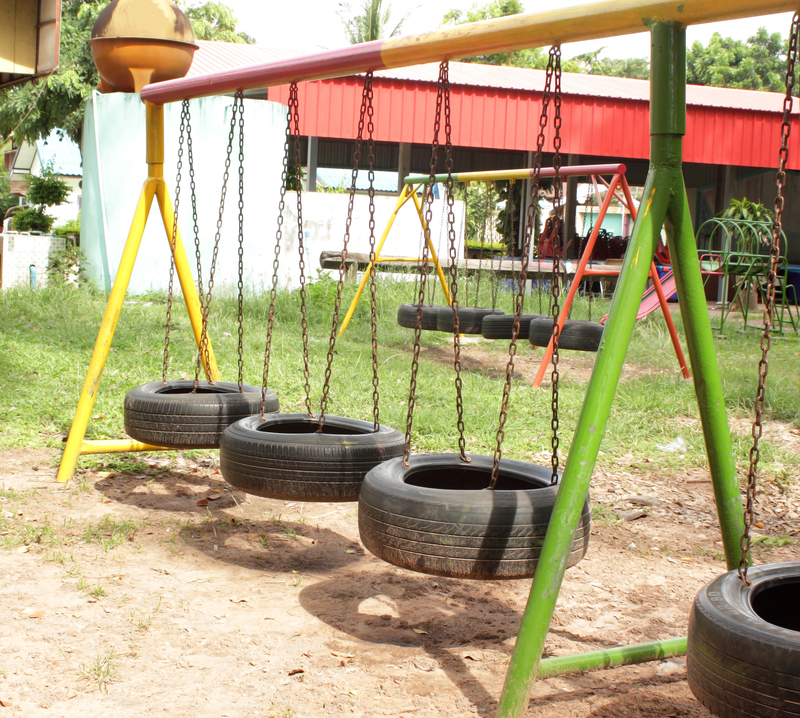Exploring the Pathway to Effective Clutter Removal
In our fast-paced world, clutter often sneaks up on us, cluttering not only our homes but also our minds. Living in a disorganized environment can lead to stress, anxiety, and a decrease in productivity. If you're seeking an organized, serene space, embarking on the pathway to effective clutter removal is the first step to reclaiming both your home and your peace of mind. This comprehensive guide explores actionable strategies, psychological insights, and sustainable habits designed to clear your space for good.

Understanding the Impact of Clutter
How Clutter Affects Our Lives
Clutter goes beyond mere mess. Physical clutter can lead to:
- Increased stress levels due to visual chaos
- Lost productivity from constantly searching for misplaced items
- Difficulties focusing and reduced creativity
- Impaired social interactions as people may feel embarrassed to invite others over
- Poor sleep quality in cluttered bedrooms
The pathway to clutter removal is not only about having a tidy living room or a clean desk--it's about creating an environment that supports your health, happiness, and success.
The Reasons Behind Clutter Accumulation
Emotional Attachment and Sentimental Value
We often hold onto items out of emotional reasons. Sentimental attachment to gifts, inherited heirlooms, or souvenirs can make it hard to let go. Recognizing your emotional connection is the first step in the clutter removal process.
Poor Organizational Systems
Without functional storage and organizational habits, even minimalist spaces can quickly become overwhelmed with unnecessary items. Effective clutter management starts with establishing order.
Procrastination and Decision Paralysis
Feeling overwhelmed leads to inaction. When faced with too many decisions--What to keep? What to discard? Where to start?--many people delay decluttering, causing the problem to snowball.
Essential Steps to Successful Clutter Removal
Step 1: Set Clear Intentions
Before diving into the decluttering process, define your goals. Why do you want to remove clutter? Perhaps to increase productivity, improve aesthetics, or create more living space. The clearer your motivation, the easier it will be to remain committed to the clutter removal journey.
Step 2: Create an Action Plan
An effective clutter removal pathway requires a plan:
- Identify problem areas in your home or workspace
- Break down tasks by room or category
- Set realizable deadlines for each phase of decluttering
Step 3: Sort and Categorize
Start by emptying the target area and sorting items into categories such as:
- Keep
- Donate
- Sell
- Recycle
- Discard
Step 4: Take Decisive Action
Avoid the temptation to shuffle items from one room to another. Decide on each item's fate and act accordingly. For items you're struggling to discard, ask yourself:
- Have I used this in the past year?
- Does it add value to my life?
- Is it worth the space it occupies?
Step 5: Organize and Optimize Your Space
Once you've reduced your belongings, organize what remains. Use storage solutions such as shelves, bins, and labels. Everything should have a designated place! This not only prevents future clutter but also simplifies ongoing organization.
Step 6: Establish Maintenance Habits
Clutter removal is an ongoing process. Spend a few minutes daily or schedule weekly check-ins to keep your space organized. Habitual decluttering ensures that mess doesn't creep back in.
Decluttering Methods and Strategies
Popular Decluttering Techniques
Various techniques can help you achieve long-term, organized living. Here are some proven strategies:
- KonMari Method: Created by Marie Kondo, this method asks you to keep only those items that spark joy. Anything that doesn't create happiness is thanked and let go.
- Minimalist Approach: Focuses on keeping only functional and meaningful possessions. If it doesn't serve a purpose, it's removed.
- Four-Box Method: Use four boxes labeled Keep, Donate, Sell, and Trash. Every item must fit into one of these categories, forcing decisions and progress.
- Room-by-Room Decluttering: Tackle one space at a time for a focused and less overwhelming experience.
Digital Declutter
Modern clutter isn't limited to physical items. Digital clutter--emails, files, photos, and apps--can hinder productivity. Use cloud storage, delete old files, and unsubscribe from irrelevant emails to reclaim your digital space.
Overcoming Emotional Barriers to Clutter Removal
Tackling Sentimentality
It's normal to find certain items hard to part with. Here are tips to ease the process:
- Photograph sentimental items before letting them go
- Repurpose heirlooms to give them new life
- Limit sentimental possessions to a single box or designated area
Addressing Anxiety and Guilt
Feeling guilty about giving away gifts or expensive purchases? Remind yourself that your home is a space for the present and future, not a storage facility for the past. Donating items can provide them with a new purpose and bring joy to someone else.
The Benefits of Effective Clutter Removal
Physical and Mental Well-being
- Reduced stress: Clean environments are proven to lower anxiety and promote relaxation.
- Improved focus: With fewer distractions, you can concentrate more easily on tasks at hand.
- Better health: Less dust and allergens accumulate in organized spaces, leading to a healthier living environment.
- More time and energy: No more wasted minutes searching for lost items or cleaning up excess mess.
Enhanced Productivity and Creativity
A decluttered work area can significantly boost your efficiency and inspire greater creativity. Many successful professionals swear by minimal environments for maximum productivity.
Financial Gains
- Sell unwanted items for extra cash
- Prevent damage to valuable belongings
- Less temptation to make unnecessary purchases when you know what you already own
Adopting Sustainable Decluttering Practices
Eco-Friendly Disposal
Sustainable clutter removal means being mindful about what you discard. Whenever possible:
- Donate usable items to local charities
- Recycle paper, glass, electronics, and textiles appropriately
- Sell items in online or community marketplaces
- Repurpose old materials instead of tossing them away
Conscious Consumption
The best way to prevent clutter is to avoid acquiring it in the first place. Be mindful of each purchase, avoiding impulse buys, and opting for quality over quantity. Ask yourself before buying: Do I really need this?
Decluttering with the Whole Family
Involving Others in the Clutter Removal Process
Clutter isn't limited to individual spaces. Involve your household in the process:
- Hold decluttering days as a family activity
- Encourage children to donate toys they've outgrown
- Set a good example by practicing what you preach
Making Decluttering Fun
Put on upbeat music, turn tasks into games, or reward milestones. When clutter removal is enjoyable, everyone is more likely to participate and maintain the results.

Maintaining a Clutter-Free Life
Regular Assessments
Periodically evaluate your belongings, especially during changes such as moving or redecorating. Seasonal audits (spring cleaning, end-of-year reviews) can prevent slow creep of clutter.
Set Boundaries for New Items
Implement one-in, one-out rules: when something new comes home, something old must go. This habit is key to long-term clutter control.
Embrace the Joy of Less
Cultivating a minimalist mindset shifts your focus from quantity to quality. Enjoy more space, time, and mental clarity by appreciating what you have and releasing what you don't need.
Conclusion: Embracing the Path to Effective Clutter Removal
Clutter removal is a journey, not a one-time event. By understanding the psychology behind clutter, establishing actionable systems, and committing to ongoing habits, anyone can achieve a tidy, peaceful environment. The pathway to effective decluttering isn't always easy, but the benefits--both physical and emotional--make it a rewarding pursuit. Start today, and transform your home into a space that nurtures your best self!
Are you ready to reclaim your space and your peace of mind? Begin your journey on the pathway to effective clutter removal now, and experience the joys of a clutter-free life!